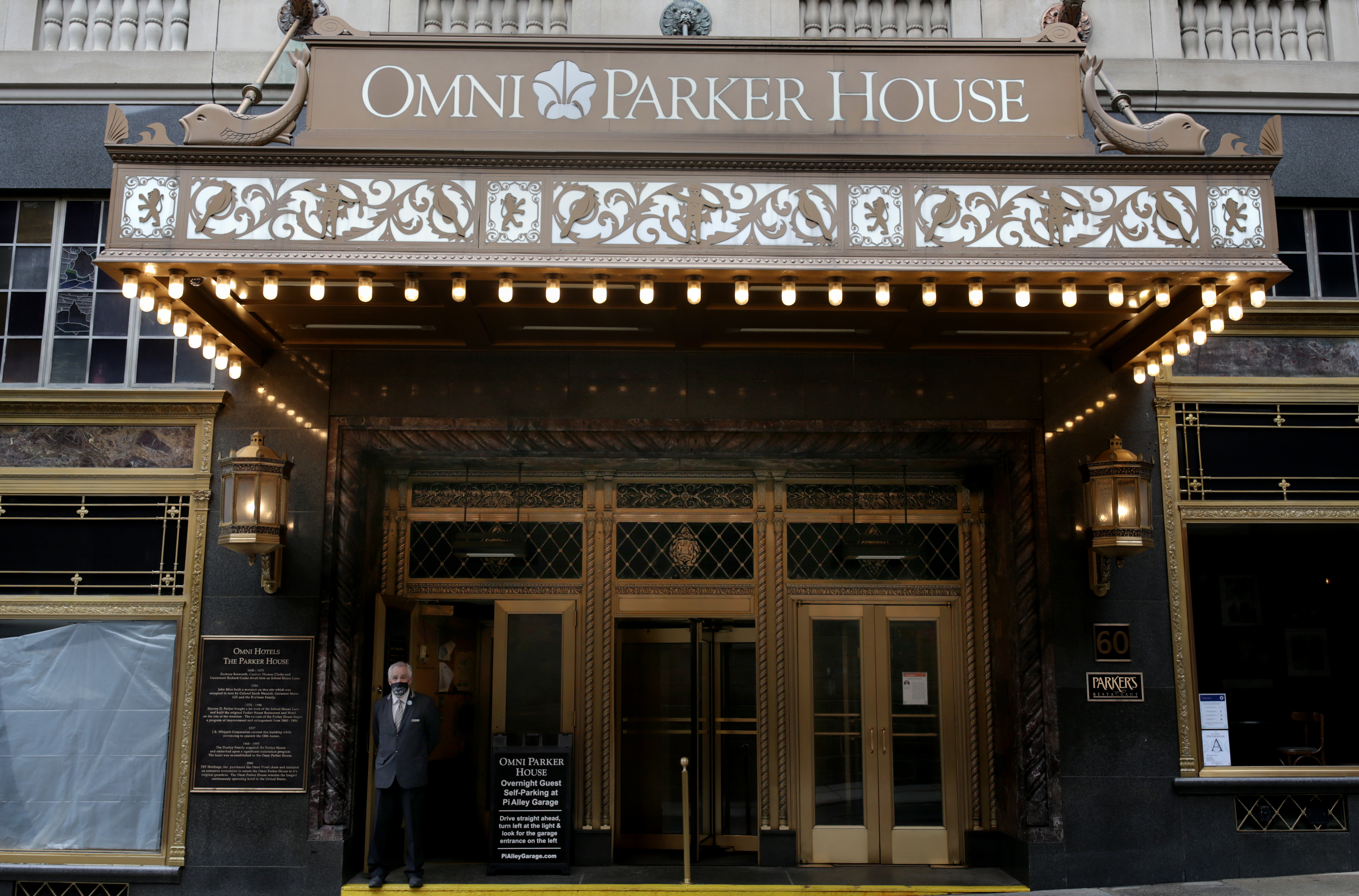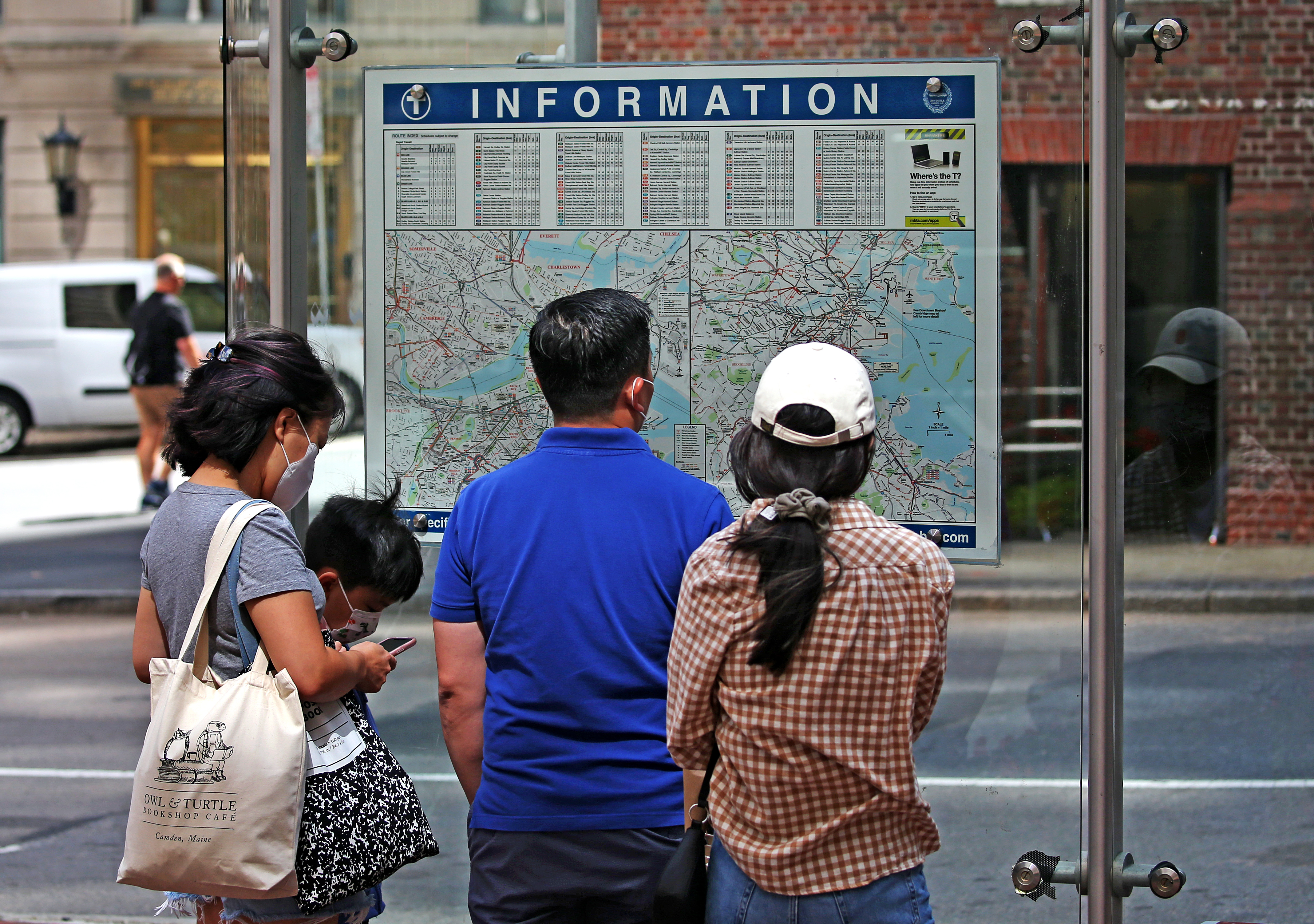Tourism surged in Mass. this summer. It wasn’t enough for hotels.
“We don’t have conferences and conventions of any size, nor do we have corporate meetings and corporate travel of any size,” Sacco said. “So you put that formula together and we’re kind of, right now, existing on leisure travel.”
He said leisure travel could continue to recover if the pandemic doesn’t worsen, but that another key segment of hotel business ― international travelers ― remains “practically nonexistent.”
And even though hotel occupancy rates across the state have risen from 2020 levels, according to Sacco, they have yet to meet pre-pandemic levels.
“I think that the industry will continue to struggle through the next couple of years,” he said.
There’s certainly a long way to go: As of July this year, Massachusetts hotels overall were down about 50 percent in room revenue compared with the same period in 2019, according to consulting firm Pinnacle Advisory Group.
The rate of recovery among hotels varies widely by region. Areas such as the Cape and the Berkshires have seen “extremely strong” tourism this summer, said Sebastian Colella, a vice president of hospitality at Pinnacle who heads its Boston office. Meanwhile, more urban locales like Boston and Cambridge are still “digging their way out” because corporate and group travel historically have made up two-thirds of revenue for hotels in cities, he said.
At the Omni Parker House in downtown Boston, corporate bookings had just started to inch upwards when news of the Delta variant stalled that modest momentum. Leisure travel, however, is still generating bookings for the hotel.

Peter Strebel, president of Omni Hotels and Resorts, said the Omni Parker House operated at just 5 percent occupancy through the first three months of 2021, but filled more than 60 percent of its rooms in July, and nearly 50 percent in August.
Strebel said this summer’s leisure travel has even surpassed 2019 levels — but that’s likely because without corporate group travel, the hotel had more rooms for vacationers.
Still, he said, these bookings haven’t made up for the loss of midweek corporate travelers. During a normal July in pre-pandemic times, occupancy was above 90 percent.
“[Current occupancy rates are] basically enabling us to get the hotel back to profitability and have more employees work there, but it’s not at the point where it was,” Strebel said.
Omni has a lot at stake in Boston ― the chain opened its $550 million, 1,054-room Omni Boston Hotel in the Seaport District on Thursday.
With schools back in session, Pinnacle’s Colella expects a downturn in leisure travel, but he hopes weekend bookings will stay strong into the fall. He’s also seen signs that continued remote work may allow for longer visits when people do book leisure trips.
“There’s been a shifting of leisure travel, where people want to relax and put their feet up,” he said. “People are now traveling three to four days and working remotely from the hotel, which has benefited a lot of these markets that have seen this extended weekend travel.”

But there’s a nagging question on Colella’s mind as cooler weather nears: What happens if a surge in COVID-19 forces lockdowns come winter?
That could also exacerbate another serious issue for hotels: the ongoing labor shortage that has hit service industries hard over the past year.
Hotels have had difficulty filling both hourly and managerial positions, causing many to introduce modifications like optional housekeeping — a consequence of both the labor crisis and COVID-19 concerns.
Because hotels aren’t as busy as usual, employees have been working fewer hours, and not just those who service rooms. The Omni Parker House, for example, still serves breakfast but has stopped offering dinner.
Still, according to Sacco at the Lodging Association, hotels are generally trying to hold on to as many staff members as they can, even if it means scheduling them to work even when there’s not much need for it.
“I’m very much an optimist, but the truth of the matter is, [2020] was a bad year. We’re having a lot of ramifications from that bad year,” he said. “We’ll climb out of it. We know we will, but it’s going to take time.”
Angela Yang can be reached at [email protected].

